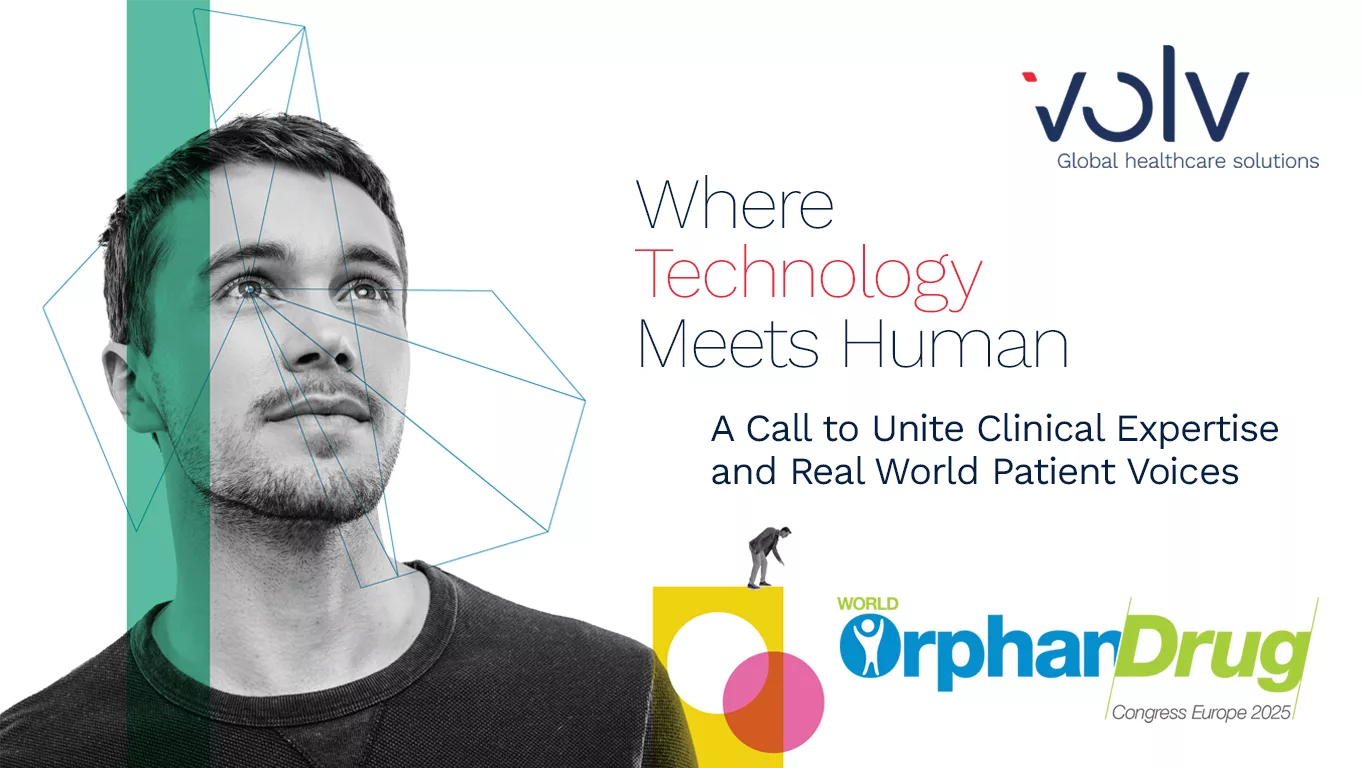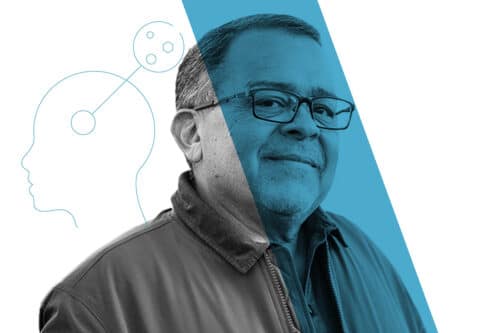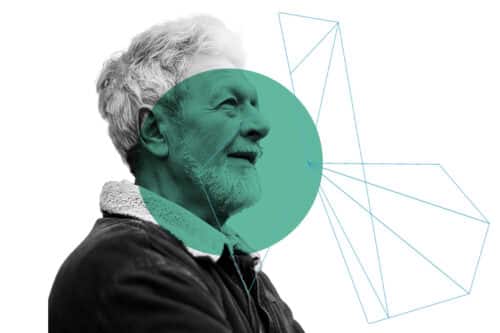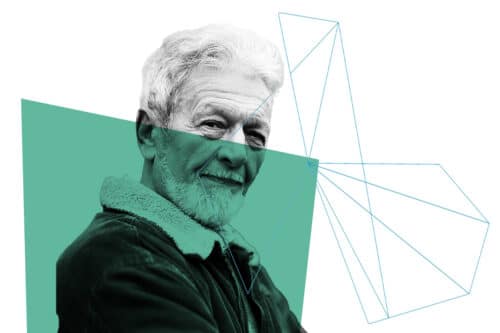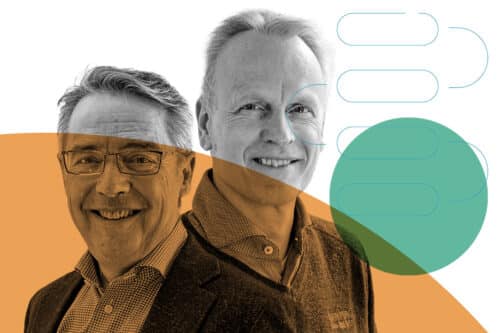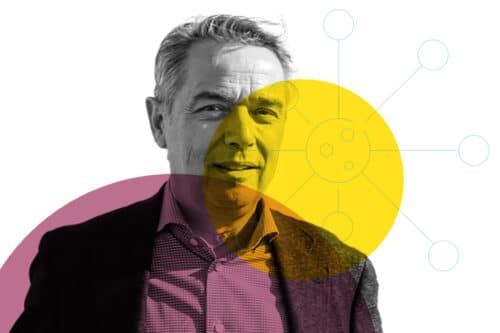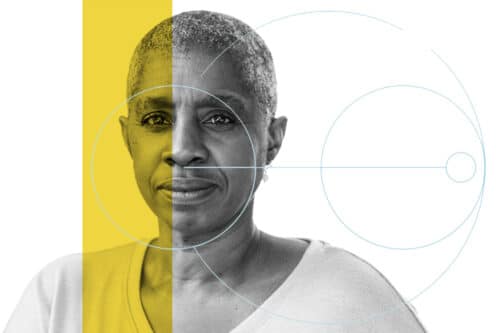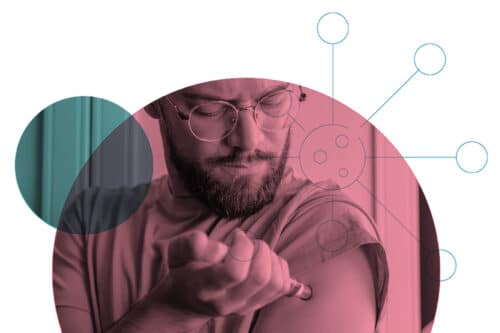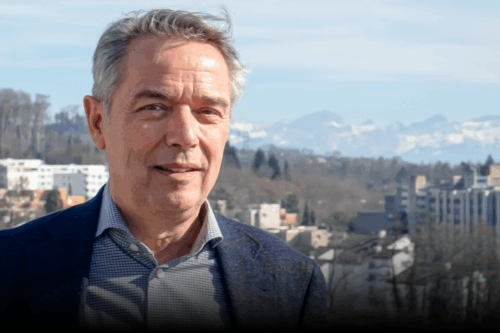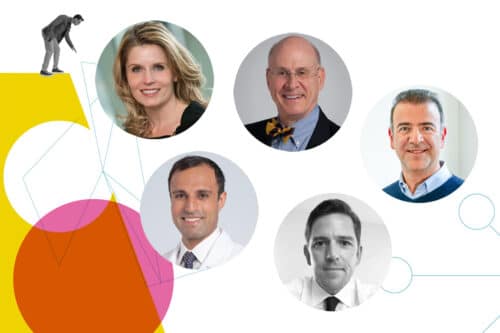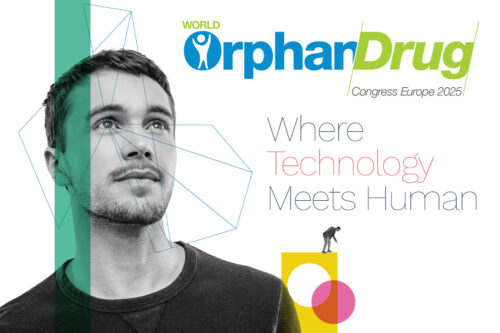Léon van Wouwe, Clinical Innovation Director, Volv Global
Since Volv Global first started attending the World Orphan Drug Congress, we have tried to listen to voices across the industry, and then acted in response to the needs we heard from every stakeholder.
One concrete result: through our “Drive for Change” workshop and panel dialogues two years ago in Barcelona, we launched the Sanofi–Volv Pompe digital natural history project, designed to integrate patient reported outcomes, routine clinical data, and longitudinal real-world monitoring to deepen our understanding of disease progression from the patient perspective. That project is already opening up a new perspective on trial design, earlier detection, and patient engagement.
As we look toward WODC Europe 2025 in Amsterdam and our panel “Bridging the Unbridgeable: Clinical Expertise vs. Real‑World Data,” I want to propose a vision – and extend an invitation. The challenges in rare and orphan disease development are too large for any one discipline to tackle alone. But together, through the union of clinical wisdom, patient experience, and real‑world evidence, we can reimagine how to advance – and innovate – care.
There is no divide – just an opportunity
Traditionally, clinical expertise has had the decisive say: the physician’s judgment, trial results, and expert consensus set the standard. Yet these are inherently anchored in medical schools of thought, local medical standards, guidelines and practices. And clinical studies are often conducted in narrow settings, selective cohorts, and snapshots in time. At the same time, a vast and growing universe of real-world data – electronic health records, claims data, wearable (or remote) sensors – is now capturing the continuum of patient lives, in context, day by day.
Too often, real-world data is framed as a challenger to clinical authority. In my view, that’s a false dichotomy. The question isn’t which source to trust – but how to integrate all available sources so that they strengthen our understanding. This is especially important in the world of rare and orphan diseases, where there is simply not a lot of information available, full stop. Clinical insight gives context, mechanistic understanding, and rigour; real-world data can give an increase of scale, nuance, and the lived voice of each patient. Together, they can infuse drug development and care with depth, relevance, and humanity.
Listening to the Patient Journey with Real-World Data, at Scale
In rare disease especially, every individual patient’s story matters, but often remains hidden. How do we uncover that journey: the hidden symptoms, delays, comorbidities, treatment burden, etc., especially from the patient’s perspective? That is where real-world evidence can help qualify and quantify patient experience:
- Mapping patient journeys – longitudinal data can reveal real-world occurrence of emerging symptoms, exacerbations, and transitions between care settings.
- Validating lived experience – patient-reported measures and digital diaries can corroborate or extend what clinicians observe.
- Enriching endpoints – real-world data enables endpoints beyond laboratory values (e.g., quality-of-life fluctuations, functional decline, patient burden), with statistical power.
- Bias mitigation and subgroup insight – by including diverse real-world populations, we reduce selection bias and uncover heterogeneity, both in the original population as well as in disease progression and response to care.
But to unlock that potential – and fully embrace the lived experience of patients – we must move beyond clinician validation alone. We must validate with patients: co-design instruments. Empower patient communities to shape protocols. Treat patients not as passive subjects of study, but as partners.
A Framework of Actions for Convergence
To create actual impact, we propose three principles to guide us through practical things that can be done:
- Co‑creation at every stage Involve patients, clinicians, data scientists, and health authorities in pharma drug development efforts, from protocol design to data governance.
- Real-world-relevant study design Use more – and better – real-world evidence to inform study design and augment randomised trials with real-world evidence arms, enriching internal validity with external relevance.
- Continuous feedback loops Use real-time analytics and dashboards to involve clinicians and patients in treatment decisions, and refine care pathways as new insights emerge.
Join the Discussion: Every Voice Matters
As we prepare for our panel in Amsterdam, here’s my call to action:
- To pharma R&D, HEOR, and access leaders: don’t relegate patient data to afterthoughts. Make real-world patient voices integral from Day 1.
- To health authorities and policy makers: support frameworks, incentives, and regulatory flexibility to embrace patient-centric real-world data integration.
- To clinicians and researchers: expand your perspectives, from case reports to population view, and partner with patients to validate insights.
- To patient advocates and individuals: lend your lived experience to the dialogue; help co‑create the systems for how your data can meaningfully contribute.
We stand at a potentially transformative juncture: the data to give every individual a voice exists; the urgency to act in rare disease is clear. The real question is: will we choose to bridge that divide?
Let us step into Amsterdam ready not just to deliberate, but to commit: to a future where clinical acumen and real-world patient voice echo each other, and mutually contribute to innovation, equity, and impact. In this effort, every individual matters … join us in building this future together.
About the author
Leon van Wouwe has 20+ years’ global experience in clinical development and operations, uniting data science with pharma and research. He drives cross-functional collaboration to advance innovative treatments.
Links
FAQ
Q: What is the World Orphan Drug Congress Europe 2025?
A: It’s one of the largest global events bringing together rare disease stakeholders, including patients, pharma, regulators, and technology providers, taking place in Amsterdam from October 27–29, 2025.
Q: Where will Volv Global be at WODC 2025?
A: You can meet us at Booth #10.200 and join our panel sessions on leveraging real-world data and new technologies for rare disease innovation.
Q: Who from Volv Global will be speaking?
A: Christopher Rudolf, CEO, will join two keynote panels, including “Leveraging new technology for smarter decision-making in Rare Disease drug development and access.” Léon Van Wouwe, Clinical Innovation Director, will lead the panel “Bridging the Unbridgeable – Clinical Expertise vs. Real-World Data”
Q: How can I get discounted tickets for WODC 2025?
A: As a Gold Sponsor, Volv Global provides a limited number of discounted tickets for clients and partners. Contact us directly to request one.
Q: How do I book a meeting with Volv Global at the congress?
A: Simply use our contact form to schedule a meeting with our team in advance.
Q: When and where is the World Orphan Drug Congress Europe 2025 taking place?
A: The event will be held at the RAI Amsterdam, Netherlands, from October 27 to 29, 2025.
Q: Why is the World Orphan Drug Congress important for the rare disease community?
A: WODC Europe is one of the key global forums where patients, advocacy groups, researchers, pharma companies, and regulators connect to share insights and shape the future of rare disease treatment and access.
Q: What topics will be covered at the World Orphan Drug Congress Europe 2025?
A: The congress covers orphan drug development, access, regulatory frameworks, patient engagement, and the use of technology such as AI and real-world data in rare disease research.
Q: What is Volv Global’s expertise in rare disease innovation?
A: Volv Global specializes in using advanced data-science and machine learning to map patient journeys, reduce diagnosis delays, and generate real-world evidence that informs clinical development and care optimization.
Q: How can I follow Volv Global’s updates during WODC 2025?
A: You can follow our LinkedIn page and visit our website for live updates, event highlights, and insights shared during the congress.
